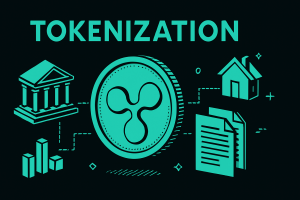
- The DOJ is investigating Binance and Tether for alleged connections to terrorism financing after convicting Sam Bankman-Fried for fraud.
- Crypto firms face increased scrutiny as regulators push for higher accountability and oversight to prevent illegal activities.
The United States Department of Justice (DOJ) has increased its scrutiny of prominent cryptocurrency firms following high-profile legal proceedings against Sam Bankman-Fried, former CEO of FTX. With Bankman-Fried now convicted of fraud and conspiracy, Binance and Tether are finding themselves in the crosshairs of authorities, addressing allegations of their platforms being used for illicit activities, including funding terrorism.
Regulatory Reckoning for Crypto Pioneers
The cryptocurrency exchange Binance and the stablecoin operator Tether are confronting grave accusations that their services may have inadvertently facilitated financial activities for Hamas. The spotlight on these companies has intensified, signaling an end to what has been considered a period of lenient oversight in the crypto sector.
This focused attention comes after a pronounced shift in the regulatory environment. U.S. Attorney Damian Williams has declared that the era of “relaxed regulation” has passed, evidenced by the swift legal actions against SBF. Binance, as a gateway for digital currency trading, and Tether, whose USDT token is a staple in crypto trading, is now operating under the presumption of tightened enforcement and monitoring.
Tether’s response to the allegations included freezing assets suspected of being tied to terrorist financing. However, questions regarding the adequacy of their internal controls to prevent such misuse remain. The broader implications for the crypto industry are clear: There must be a balance between innovative financial technologies and robust legal frameworks that prevent their abuse.
Enhancing Oversight in Cryptocurrency
Senators have called on the DOJ to take firm action against entities like Binance and Tether, emphasizing that innovation must not come at the cost of circumventing legal boundaries. The insistence on integrity is a direct result of the growing concern over the misuse of cryptocurrencies for fraud, scams, and money laundering, a sentiment echoed by SEC Chair Gary Gensler.
The DOJ’s resolve in pursuing cases against crypto organizations suggests a new chapter in enforcing financial regulations. The high-profile downfall of Bankman-Fried’s FTX empire serves as a cautionary tale for the sector: Compliance with regulatory standards is mandatory for survival and prosperity.
In the aftermath of the conviction, Damian Williams made a resolute statement to the press, affirming the government’s readiness to combat fraud within the burgeoning cryptocurrency industry. This sentiment prepares the market for an era of more aggressive legal scrutiny.
Lessons from the Fall of a Crypto Titan
Sam Bankman-Fried’s conviction on all counts of fraud related to the collapse of FTX marks a watershed for the cryptocurrency industry. The unraveling of FTX began with investigative journalism by CoinDesk, which revealed financial discrepancies within Alameda Research, Bankman-Fried’s trading company. The company swiftly faced public and legal fallout, leading to its bankruptcy and the stark revelation that it had mishandled customer funds.
The conviction highlights the necessity for cryptocurrency entities to re-evaluate their compliance strategies. With the Southern District of New York’s history of prosecuting financial misconduct, including the infamous Bernie Madoff case, the crypto industry is on notice. The statement from Williams reinforces the commitment to prosecuting fraudulent activities, regardless of the complexity of the cases involved.
The upcoming trial of Avraham Eisenberg, accused of a major exploit against Mango Markets, further delineates the DOJ’s determination to apply traditional legal principles to contemporary financial technologies. Despite the inherently intricate nature of decentralized finance, the federal government’s approach seems unyielding.





















